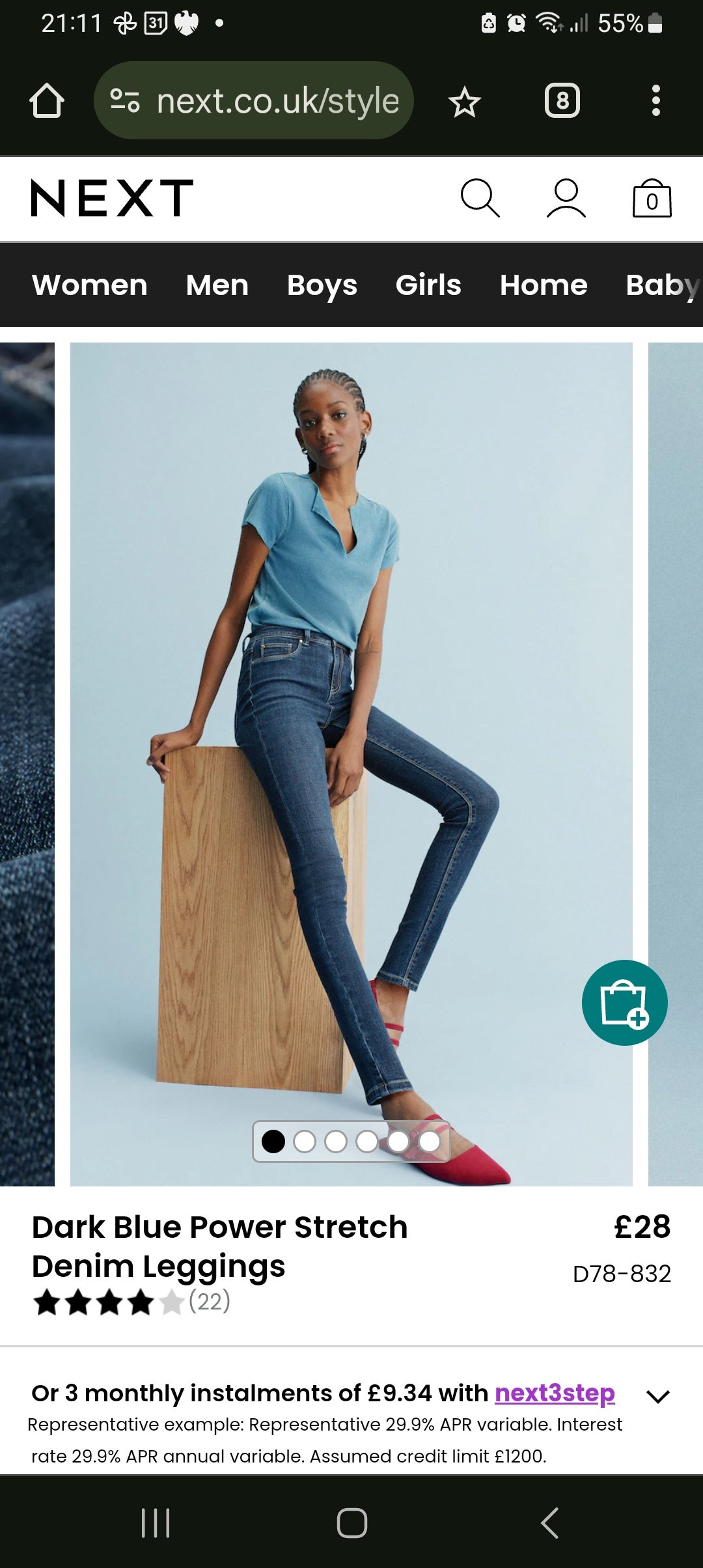It’s the kind of story that should be straight out of 2002: clothing company uses extremely slim model to market its products, then admits to digitally altering her body to make her look even slimmer. Gets a little slap on the wrist. Then another clothing company does the same and the cycle continues.
This week, the company in question was Next, who the Advertising Standards Authority (ASA) said used an “unhealthily thin” model in a marketing image for its “power stretch denim leggings” that was also digitally altered.
Used online, the ad depicted a young woman wearing the high-waisted leggings with a blue T-shirt. The retailer argued that the model had a “healthy and toned physique that aligned with the nature of their product” and that they used models “ranging from slim to plus size” across all of its marketing. It added that while they hadn’t retouched her, it had altered the leggings to make them look longer to “maintain focus on the product while avoiding any exaggeration of her body shape”.
The ASA ultimately ruled that the shot had been done at a low angle that “accentuated the model’s already tall physique [and] further emphasised the slimness of the model’s legs”. “Because the pose, camera angle and styling in the ad investigated strongly emphasised the slimness of the model’s legs, we considered that the ad gave the impression that the model was unhealthily thin,” its ruling stated before calling the ad “irresponsible”.

Some people may be surprised by this. Hang on, fashion giants are still fetishising thinness? And altering women’s bodies to make them look thinner in order to sell clothes? You mean female beauty is defined by a single-digit dress size? Yes, they are and yes, it is.
Sadly, the fact that Next had done this was not remotely surprising to me. Body positivity, fun as it was for a while, was only ever going to be transient. At least where the fashion world was concerned.
Sure, there are a few brands that put inclusivity front and centre: in the UK, these include Sinead O’Dwyer, Chopova Lowena, and Karoline Vitto. But they are still alarmingly few and far between; have a quick browse on any high street shop’s website and I guarantee the models will mostly be slim.
The same is true of the runways; London Fashion Week begins next week and, once again, I suspect the
Of course, Next has taken all this one step further by digitally altering its imagery. What’s the implication here? Are women supposed to think buying those leggings will make their own legs look slimmer? Is that how we’ll finally feel desirable? And what if we’re happy with our legs just the way they are? Is that not allowed?
The whole thing leaves a rancid taste in the mouth, particularly when you read some of the ASA’s ruling in full – it detailed that the model’s face was not “gaunt” and that her arms didn’t “display any protruding bones”. The young woman in the image is spoken about as if she is nothing but a product used to flog clothing.
I really would like to think that things are changing when it comes to how we perceive and speak about women’s bodies. But evidently, we’re still a while away from getting to the right place. A place where a woman is allowed to be any size she wants and still be considered beautiful – not just by her own standards but by the fashion industry’s too. A place where women buy a pair of leggings because they’re comfortable – not because they want to shrink themselves.
And a place where body inclusivity is something that brands embody because they believe in it – not just because they want to cash in on the latest trend.






